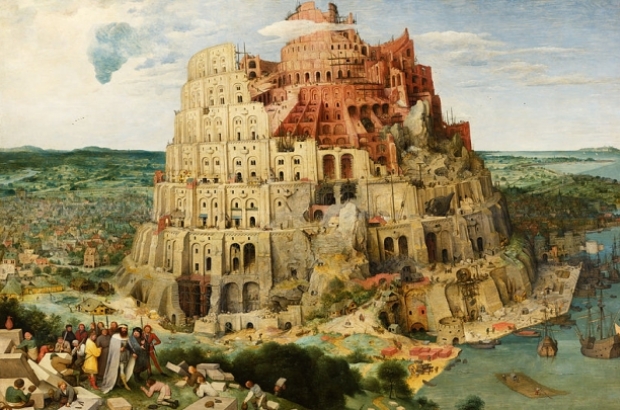- Daily & Weekly newsletters
- Buy & download The Bulletin
- Comment on our articles
Brussels, Tower of Babel
The number of languages spoken in Brussels is constantly on the rise. At the same time, French as the dominant language for interactions is losing ground and the number of people who master several languages is declining. This could be an ‘opportunity’ for other languages but might also pose a threat to our city: how will we communicate with one another in the future if we all speak a different language and don’t know have a common one?
History teaches us that multilingualism in Brussels is nothing new. Until the beginning of the 20th century, most of Brussels’ ‘ordinary’ citizens spoke a Flemish dialect. It was gradually replaced as French became the lingua franca. French was no longer only the language of the upper classes, but had become a tool for social upwards mobility for the entire Brussels population. Speaking the Flemish dialect was regarded as backwards and Dutch speakers in general were discriminated against, both socially and economically. The huge success of French-speaking schools and the gradual decline in knowledge of Dutch were the logical consequences. This was also reflected on a political level, where French-speaking parties took an ever bigger share of the vote and where the Dutch-speaking minority obtained minimal representation warrants. Towards the end of the 20th century, the influx of North-Africans and the arrival of an English speaking international community started to have an impact on language use in Brussels.
This part of Belgian history was fairly well reflected in the results of the first ‘language barometer’ by Professor Janssens of the VUB on the use of languages in Brussels, which dates from the year 2000. Then, 95.5% of Brussels citizens claimed to speak French, 33% Dutch, 33% English and 10% Arabic. Most people grew up in households where only one language was spoken and French was virtually the only language used for communication with people speaking another language.
Twelve years on, the third language barometer shows a wholly different picture of the Brussels language landscape. French is still fairly dominant but now only 88.5% of all citizens claim to know it well. The same goes for Dutch: down from 33% to just 23%. This is a big shift in only a decade, especially if we take a closer look: only one in three speaks exclusively French at home, only 5% speak exclusively Dutch. Mixed-language households have become the rule, rather than the exception. More than half of Brussels children grow op in a family where at least two languages are spoken. Almost 20% of all Brussels citizens speak Arabic and, alarmingly, 10% of the population doesn’t speak French, Dutch or English. By the same token, multilingualism is far from guaranteed: only 42% of all Dutch speaking people in Brussels and only 7% of all French speakers call themselves trilingual, compared to 82% and 15% respectively in 2001.
This leads to a contradictory situation: on the one hand, Brussels becomes more and more of a Tower of Babel where an abundance of languages are known and spoken. On the other hand, fewer people tend to master enough of them to communicate with one another, potentially causing the creation of ‘language islands’, leading to cultural and social segregation. Multilingualism is a condition for entry into the labour market but also a way of participating culturally, politically and socially to our society.
That is why Philippe Van Parijs, economist, philosopher and engaged Brussels citizen, together with a number of academics, and prominent public figures, launched the Marnix-plan. This plan is named after Philippe de Marnix de Sainte Aldegonde (1540-1598) who was born and grew up in Brussels. He was a close collaborator of William of Orange, himself a Brussels nobleman, who is now regarded as the founding father of the Netherlands. Marnix became one of the chief figures of the Calvinist revolt against Spanish domination. He was a remarkable polyglot and published books in Latin, French and Dutch and was a fierce defender of learning several languages at an early age.
The Marnix Plan is a from-the-bottom-up collective effort aimed at promoting the learning of several languages among all layers of the Brussels population. It gives priority to French, Dutch and English, while encouraging the transmission of all native languages from one generation to another. The plan believes that “the ability to speak French, Dutch and English must not remain the monopoly of a privileged few, but must become the shared asset of all Brusselers, regardless of their social background or mother tongues”. It therefore tries to boost both the learning of languages (even at the same time) AND the acceptance and passing on of the mother tongue to our children, which it describes as one of the nicest gifts that they could ever receive.
The challenge is clear: if we do not manage to bring up Brussels’ youngsters to be polyglots, the risk is that we will end up with a city divided along language lines. No longer along the historic Flemish-French lines, but with lots of isolated groups holed up on their own language islands. If we cannot communicate with one another, social inclusion, access to the job market and active citizenship are simply not possible. It is time to talk!



















